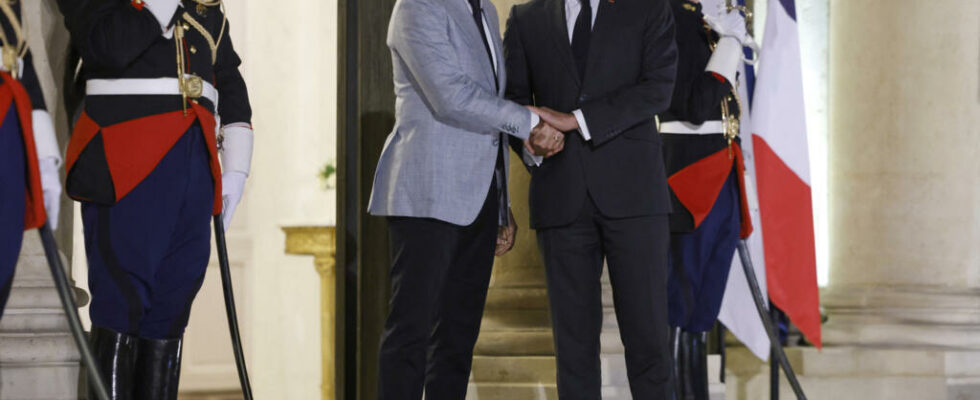For two days, several dozen heads of state and government from member countries of the International Organization of La Francophonie (OIF) will meet in France to talk about the future of the French language and the major international crises of moment. An event that France has not hosted for 33 years and which many African leaders are expected to attend.
4 mins
This is a first in 33 years: this Friday October 4 and Saturday October 5, the France hosts the 19th summit of the Francophoniean event to which most heads of state of member countries of the International Organization of La Francophonie (OIF) are expected. Today with 88 members who have set themselves the common ambition of promoting the French language throughout the world – it is today spoken by 320 million people on the planet – the OIF should officially welcome on this occasion a new full member – Ghana – while Angola should officially join the organization with observer status.
All the leaders who have confirmed their participation will first meet, at the end of the morning, at the Château de Villers-Cotterêts, in the north of France, at the Cité internationale de la langue française, for a first day focused on digital and culture with the theme this year: “ Create, innovate and undertake in French “. It will end in the evening in Paris with a dinner at the Elysée Palace. Saturday will be marked by the real highlight of the event. As part of a more political sequence at the Grand Palais, the heads of state and government will meet behind closed doors aroundEmmanuel Macron to discuss the major international crises of the moment, starting with that in the Middle East where Lebanon – itself a member of the OIF – is the target of Israeli attacks and the escalation between the Jewish state and the Iran is raising fears of a conflagration throughout the region.
The absence of Sahelian states and the situation in eastern DRC on the menu of discussions
But the discussions should also focus on several African issues. While only a few rare leaders of the continent will be missing – the SenegaleseBassirou Diomaye Fayethe Congolese Denis Sassou Nguesso or even the King of Morocco, Mohamed VI, whose arrival had been anticipated for a time -, it should in particular be a question of the absence of the Sahelian States, currently suspended from the organization. However, they have vocation to join the Francophonie » confides a diplomatic source who explains that: “qWhen countries have a positive dialogue with the Francophonie to emerge from the transition, when they have a course with a timetable, and when steps are actually completed, these countries return to the Francophonie family. “. As such, the recent reintegration of Guinea can be seen as a signal addressed to them.
Among the other major subjects on the agenda, there will also be the situation in the East of the DRC on which Emmanuel Macron will try to influence. As such, the French president must speak in advance with the Congolese president Felix Tshisekedi this Friday morning, and tomorrow Saturday with his Rwandan counterpart Paul Kagame. Objective: to promote an agreement that could ultimately enable de-escalation in the region.
A platform for Emmanuel Macron in search of a new role
While he no longer has control over French domestic politics – the appointment of Michel Barnier at Matignon forced him to fall back on international affairs and defense, his reserved areas – Emmanuel Macron indeed intends to make this 19th summit of the Francophonie a platform, a lever, for France’s diplomatic action, but also a step in the construction of his new role within the executive. As such, the choice of Villers-Cotterêts castle to launch the summit owes nothing to chance. It’s even quite a symbol: the head of state will receive his guests in a building from which he made his great cultural work – it was he who wanted its restoration – and where, in 1539, François I signed the ordinance imposing the use of French instead of Latin in all acts of administration and justice of the kingdom from France.
